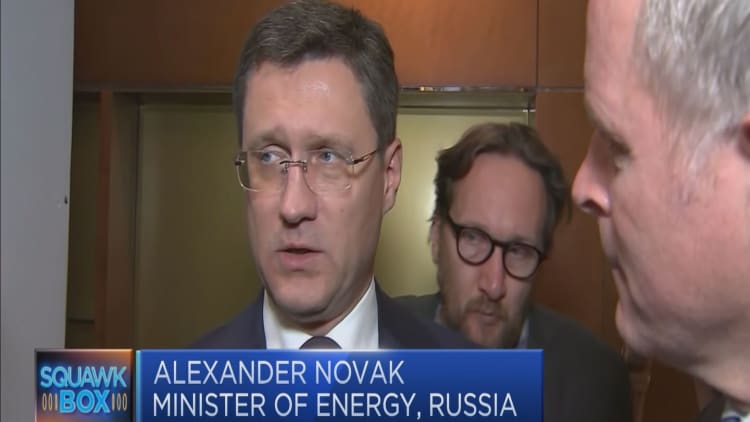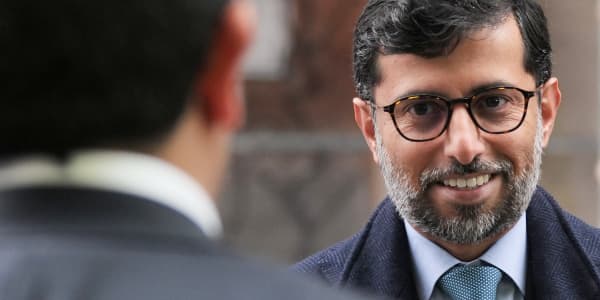
OPEC and non-OPEC exporters must stick to a consistent message if they are to avoid exacerbating wild swings in the oil market, Russian Energy Minister Alexander Novak said Sunday.
"There is a lot of volatility in the market. And what's more this volatility could remain," Novak told CNBC's Steve Sedgwick, according to a translation.
"Therefore, right now we shouldn't be making any hasty decisions. We need to look at the situation very carefully to see how it will develop so that we don't end up changing our course by 180 degrees every month."
His comments come shortly after top exporters at the Joint Ministerial Monitoring Committee (JMMC) meeting in Abu Dhabi said they would not shy away from another round of production cuts.
This appeared to an abrupt turnabout from OPEC's September meeting, when some of the world's leading oil producers were talking about pumping extra oil onto the market in order to help soothe intensifying supply shock fears.
The group said Sunday it would "continue closely monitoring" oil market conditions, before adding that "new strategies" could be implemented to balance the market in 2019.
Saudi Arabia's Energy Minister Khalid al-Falih said Sunday that the OPEC and non-OPEC alliance would collectively decide whether reducing global output would be necessary over the coming weeks.
The next full OPEC meeting, when any policy decision will be voted on, is scheduled to take place in Vienna, Austria on December 6.
About two dozen exporting nations began capping their output in 2017 in a bid to drain a global crude glut. The group agreed in June to restore some of that output, and producers with spare capacity have been pumping more oil since then.
Market balance
The JMMC meeting follows a sharp drop in oil prices in recent weeks, as crude futures benchmarks have tumbled approximately 20 percent or more since climbing to a peak in early October.
International benchmark Brent crude settled at $70.18 on Friday, down almost 1 percent on the day, while U.S. West Texas Intermediate (WTI) fell for the 10th straight session to close at $59.87.
The collapse in prices constitutes a stunning reversal from last month, when crude futures had hit nearly four-year highs as traders braced for potential shortages once U.S. sanctions on Iran came back into force.
"We have so many things that are changing and we need to change our strategy to achieve the target — and the target is to maintain market balance," United Arab Emirates' Energy Minister Suhail Al Mazrouei told CNBC on Sunday.
The prospect of looming sanctions against OPEC's third-largest producer had prompted some investors to bet on Brent soaring above $100 a barrel before year-end. But any talk of a return to tripe-digits has since evaporated.
Instead, bearish market sentiment has pressured U.S. crude to its longest stretch of daily declines since 1984.
Saudi Arabia, Russia and the U.S. — the world's top three exporters — have more than compensated for lost Iranian barrels since the start of the month.
In fact, all three countries are pumping at or near record highs, with other OPEC members and exporting nations also turning on the taps.





